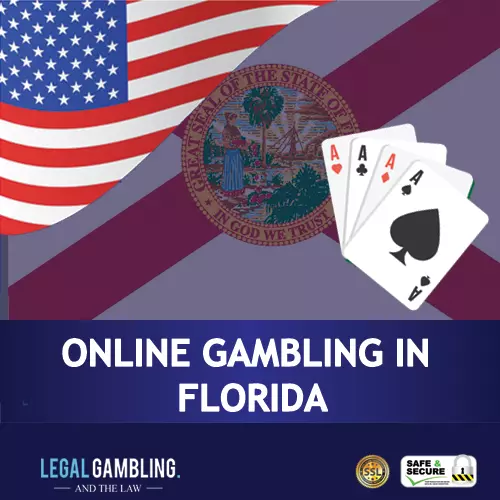Gambling In The United States
Four key legal documents oversee the United States’ treatment and tolerance of casino gambling. These domestic gambling legislations regulate various components of American gambling opportunities, each from different regulatory aspects such as finances, internet access, and anti-money laundering.
On this page, we discuss briefly each of the laws weight and expand further within individual USA gambling law pages. We have also conveniently listed links to the laws for further explanation. Below is an infographic timeline of US gambling laws and when they took effect.
American casinos, cruise ships, horsetracks and dogtracks - the complete gambling landscape of United States. Includes United States casino details, gambling news and tweets in United States, area.
US gambling law are governed by three arrangements of gaming guidelines, one each for local, state, and federal elements. Gambling in the internet: rules of the game ✔ Articles and news about international business ✔ Law&Trust international ✔.
The Federal Wire Act of 1961
This Act became law in 1961 under the Kennedy administration to combat illegal number fixing, racketeering, and money laundering operations run by the mafia. The Federal Wire Act prevented sports betting information and wagers from being transmitted across state borders and between US territories. The Act prevented this action from occurring through telecommunication, i.e. telephone calls and telegraph messages.
The creation of this legislation predated the use of the internet for mass commercialization and consumerism. Individual authors and legislators clearly understood the Federal Wire Act only applied to topics discussed within its construction. By all technicality, the Wire Act prevents interstate wagering and mainly assists states in enforcing their own laws concerning gambling activities.
This law has been reinterpreted multiple times since the 2000’s. Under various administrations, the U.S. federal Department of Justice had expanded or narrowed the application of the Federal Wire Act. Typically, this interpretation has revolved around the concerns of online gambling.
The Unlawful Internet Gambling Enforcement Act
Enacted in 2006, the UIGEA was not a stand-alone bill rather it was inserted last-minute in a must-pass bill known as the SAFE Port Act. Since 1998, Congress has attempted to pass an anti-online gambling bill and the UIGEA gave them a moment of success as their insertion has passed under the radar and the last reading of the SAFE Port bill was waived. However, the UIGEA had been transformed via multiple readings, additions, and edits that it no longer served the same purpose it originally intended.
Once passed, anti-online gaming legislators realized the UIGEA was simply a banking regulation bill. The Unlawful Internet Gambling Enforcement Act (UIGEA) prevented financial institutions from knowingly processing online gambling transactions. While this Act did not forbid online gambling access from either operator or player, the Act did provide to be inconvenient for online gambling payment processors which in turn hurt the bottom line of most American-serving online gambling entities.

The Department of Justice Opinion Memorandum of 2011
Two high-level US government agencies, Department of Justice (DOJ) along with the Office of Legal Counsel (OLC), have revisited the Federal Wire Act and offered their formal interpretation of the law which was created in the 60’s. Under the Bush administration, the feds attempted to apply the Wire Act to offshore gambling but were unsuccessful due to the wording and scope of the law. Numerous legal experts disagreed which the Act application toward anything beyond sports gambling.

The DOJ and OLC revisited the Wire Act and gave a formal DOJ Opinion Memorandum in 2011 which clarified the law’s reach to only include domestic online sportsbooks, providing the authority to regulate online casinos and poker sites to the individual states who desired to do so.
States rejoiced upon notification of this Memo and began constructing laws to allow state-regulated online gambling offers, of course exempting regulations for online sports betting. However, in 2018 a law which prevented domestic sports gambling venues was rescinded which led to the questioning of the Wire Act’s application over state-regulated online sportsbooks. This stirred a quick response which detailed the Wire Act’s application to only prohibit interstate sports wagering online and via mobile. This means that domestic online casinos, poker sites and sportsbooks can now be legally regulated by individual states. Licensed US friendly online casinos operating offshore remained unaffected by memorandum.
The Restoration of Americas Wire Act
Introduced in 2014, the Restoration of Americas Wire Act (RAWA) bill is an anti-online gambling legislation at its core. The bill would federally prohibit any and all online gambling from casino gambling, poker gambling, to sports gambling from either overseas or domestically. Sheldon Adelson, the Sands brick and mortar casino-chain owner, is one of the largest donors for this bill and has monetarily contributed to Republican party members who push RAWA’s agenda.
Little movement has pushed RAWA to fruition as numerous states would suffer enacting RAWA after legalizing and implementing online gambling offers. RAWA, on the other hand, contains specific carve-out for certain gambling games. This would allow these game types to be exempt from federal prohibition.
How Do These Laws Affect Online Gambling in the United States?
Sports Gambling In The United States
None of these country-specific gambling laws prohibit offshore online gambling at licensed and regulated betting site and only regulate domestic online gambling practices. The Federal Wire Act was arguably a key document which caused debate well after its creation. The UIGEA produced friction and inconvenienced online gambling businesses by hurting their profits through payment processing issues, and the DOJ 2011 opened offshore and domestic online casino and poker gambling to Americans once again, offshore sportsbooks were also permitted.
RAWA, not yet a law, intends to prohibit all forms of online gambling whether licensed and regulated by a U.S. state or overseas. While these legislative pieces have some effect or at least potential effect in the case of RAWA, there is no federal law which prevents Americans from enjoying offshore online gambling or state-regulated online gambling offers. Rather each state has the ability to choose to permit or prohibit gambling within their borders, to which many have shown interest in regulation.
Nfl Gambling In The United States
Despite the fact that in many countries the legalization of online casinos has not even begun today, the States in this sense were, until recently, a “prosperous” country. Although online gambling is still far from being allowed everywhere, the legalization of this segment has been successfully carried out “by the state” for a couple of years. And in as many as 5 regions it has already been resolved:
- Nevada.
- New Jersey.
- Pennsylvania.
- West Virginia.
- Michigan.
And even though in many of these states, legalization proceeded “with a creak”, overcoming many obstacles, but as a result, local gambling operators received licenses in order to provide their services not only in land-based establishments, but also on the Internet.
This led the proponents of legalization to the idea that now there is nothing to worry about: albeit slowly, the remaining 45 states will come to the idea of allowing online casinos on their territory. And at least this business will always remain legal where it was allowed.
But it was not there. As it became known, a bill was recently submitted to the US Senate, which, if successfully passed, will not only suspend the process of further legalization of online casinos, but may even “close the shop” in those states where licenses have already been issued to them.
Reasons for the ban on online gambling in the USA

According to the official version, which was proposed by Republican Senator Tom Cotton, who submitted this bill, online casinos should be banned in order to protect the population, especially minors, from its corrupting action.
Even at the stage of consideration of the draft law, it is assumed that 2 reports should be received:
From the Treasury: what kind of gambling exists in the United States today, how legal they are. And most importantly: how payments are credited to the accounts of gambling sites.
From the Federal Trade Commission. She is obliged to analyze gambling advertising and make her own decision: how much this advertising complies with the policy of protecting minors from gambling.

In simple terms, Cotton believes that there are a lot of casino ads in the online segment. Moreover, many of them do not hesitate to use cartoon characters in the video sequence, which inevitably attracts children. That is why their activities need to be taken under control. Better yet, just ban it.
And besides, everything that happens is contrary to the US law UIGEA (Unlawful Internet Gambling Enforcement Act, that is, the “law on the prohibition of gambling on the Internet”), which was passed in September 2006 at the federal level.
Rating article:
5/5
0
Article viewed